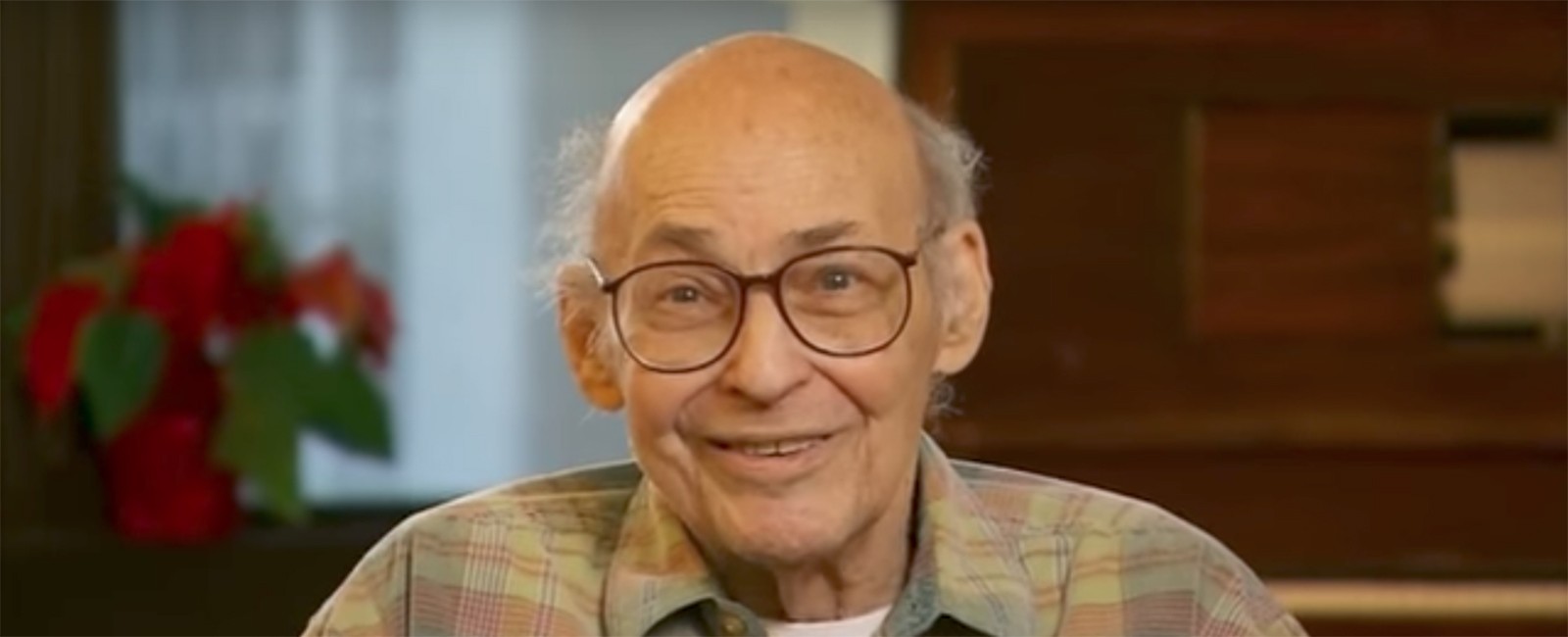‘2001’ and artificial intelligence: reflections from Marvin Minsky, Frontiers laureate in 2014
Fifty years ago, on 3 April, 1968, the world had its first glimpse of ‘2001: A Space Odyssey’, Stanley Kubrick’s visionary film imagining a space mission on which an intelligent machine named HAL rebelled against the human crew. To celebrate the occasion, we have visited our video archives to retrieve a fascinating interview, organized by the BBVA Foundation, between Marvin Minsky, one of the fathers of artificial intelligence and an advisor on Kubrick’s masterwork, and Spanish film-maker Kike Maíllo. The encounter, which you can view on the video at the top of this page, took place during Minsky’s visit to Madrid in June 2014 to pick up the Frontiers Award in Information and Communication Technologies.
3 April, 2018
Minsky – who sadly passed away in 2016, two years after receiving this award – was adamant that there was no fundamental difference between humans and machines. The human brain was, as he put it, simply “a meat machine.” He was convinced therefore that it was only a matter of time and money before a computer would be built with the ability to replicate the brain’s functions.
Minsky was a visionary in the field of artificial intelligence, who tried to anticipate its future development as well as that of robotics. For this reason, he was always fascinated by the predictions made by science fiction about technology in general, and intelligent machines in particular.
Not surprisingly, therefore, Stanley Kubrick approached Minsky in the late 1960s to advise on some aspects of a film he was preparing with Arthur C. Clarke, co-author with Kubrick of the now famous script.
Curious about this relationship of Minsky’s with the film genre of science fiction, the BBVA Foundation organized the interview we are now making available to website users between the father of artificial intelligence and Kike Maíllo, director of the film Eva, in which the human beings of the year 2041 share their lives with mechanical creatures. This title won the Spanish film-maker the Goya award for best new director in 2012.
“I think the film industry did very well in anticipating how artificial intelligence would develop,” Minsky told Maíllo in the course of their conversation. “It was quite impressive to see what happened in film with people like Kubrick, who managed a very sensitive treatment of speculations about the future.”
While admitting that science was still a long way from being able to build intelligent computers like the rebellious HAL, Minsky insisted that the idea was not so far-fetched. As he remarked on receiving the Frontiers Award, “Right now one thing is sure: there’s something wrong with any claim to know, today, of any basic differences between the minds of men and those of possible machines.” And if we do not yet have thinking machines as intelligent as humans, for Minsky this is only due to “a lack of economic and human resources.”

